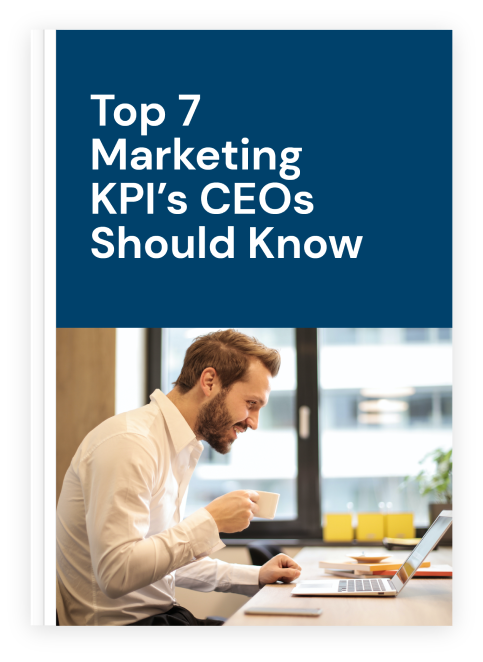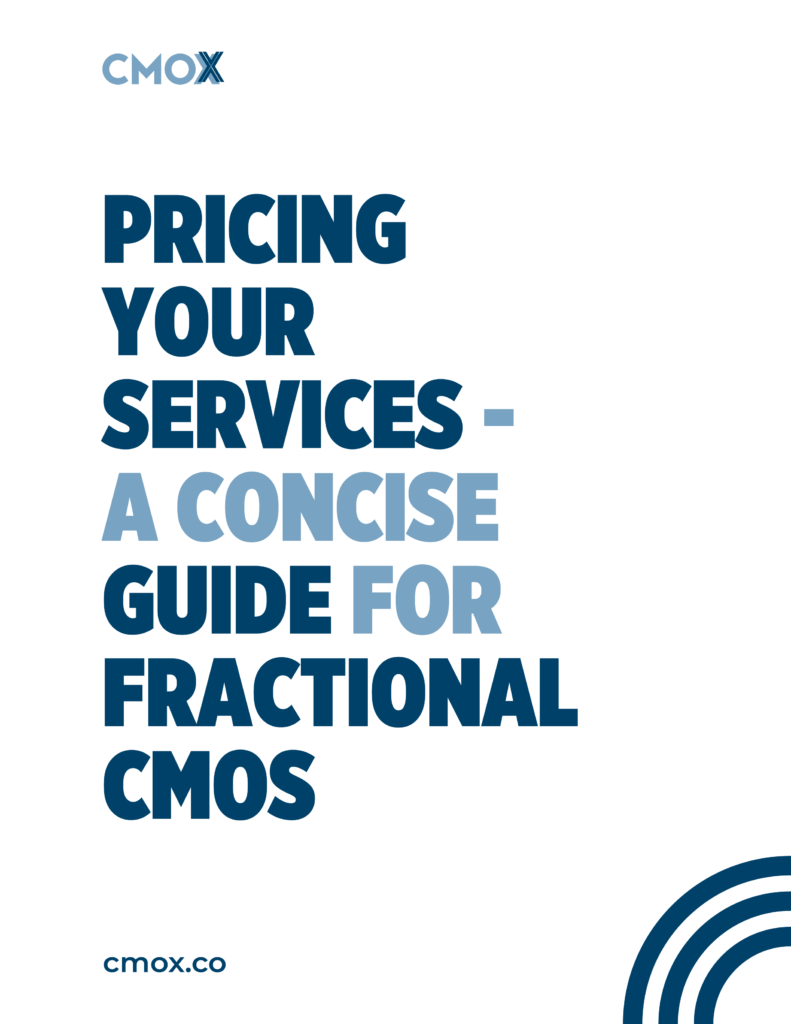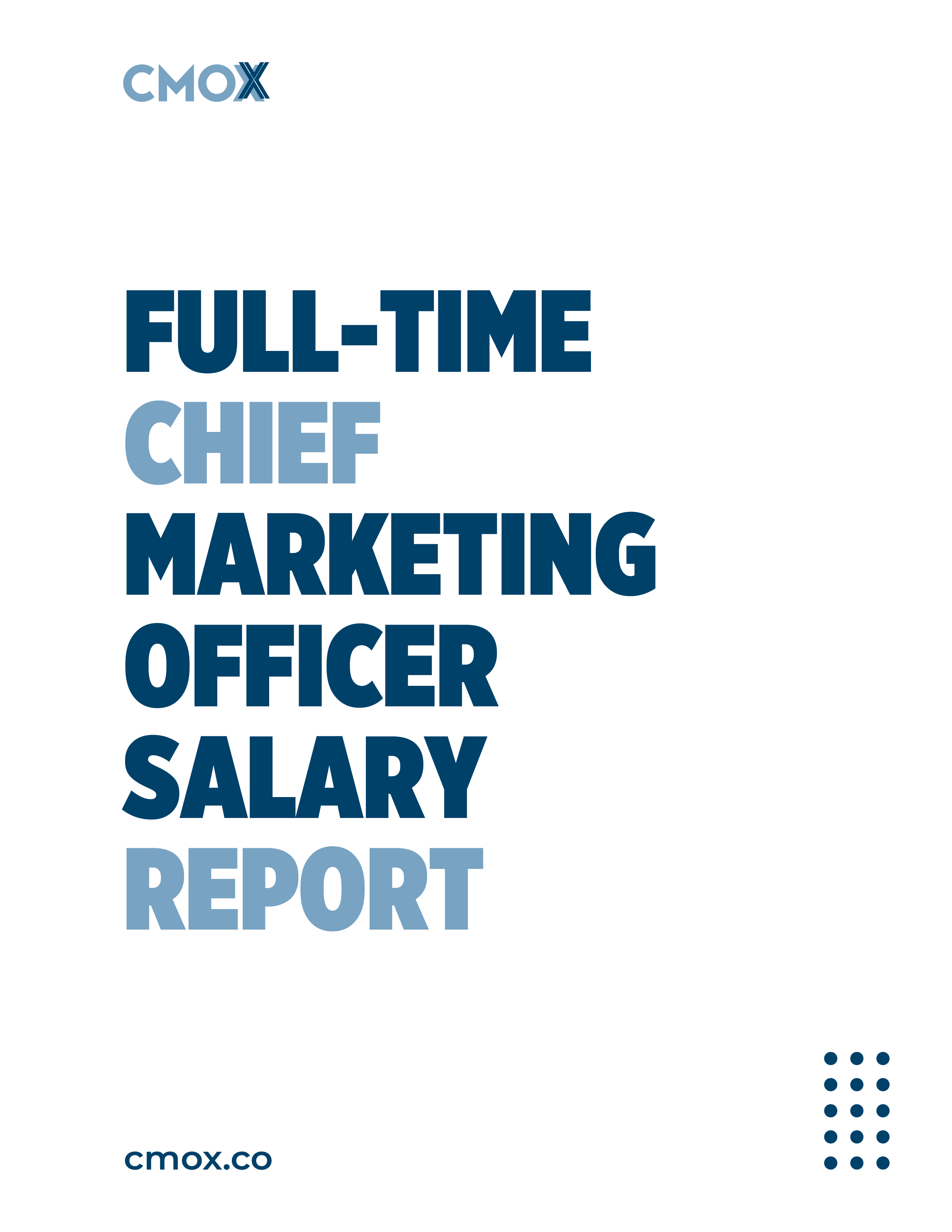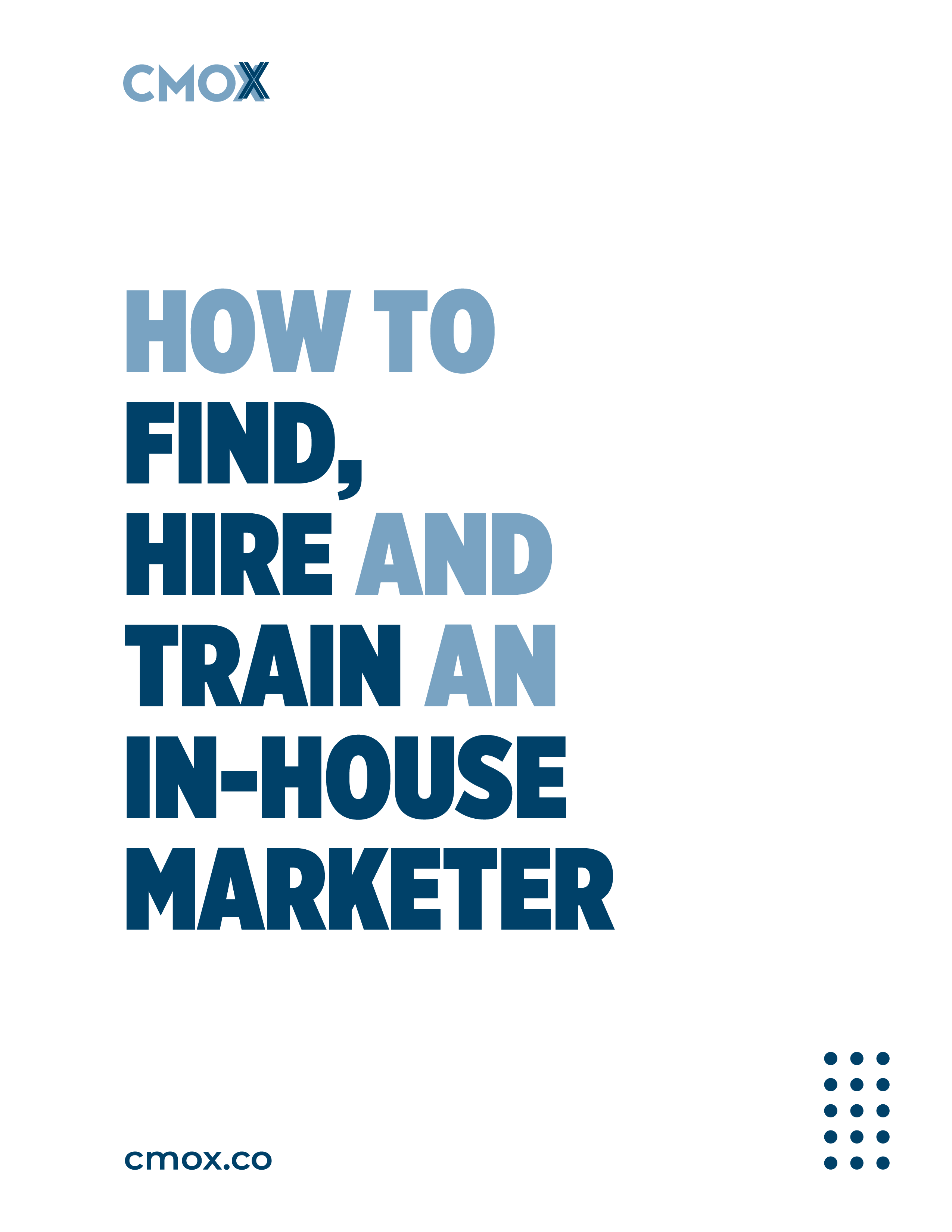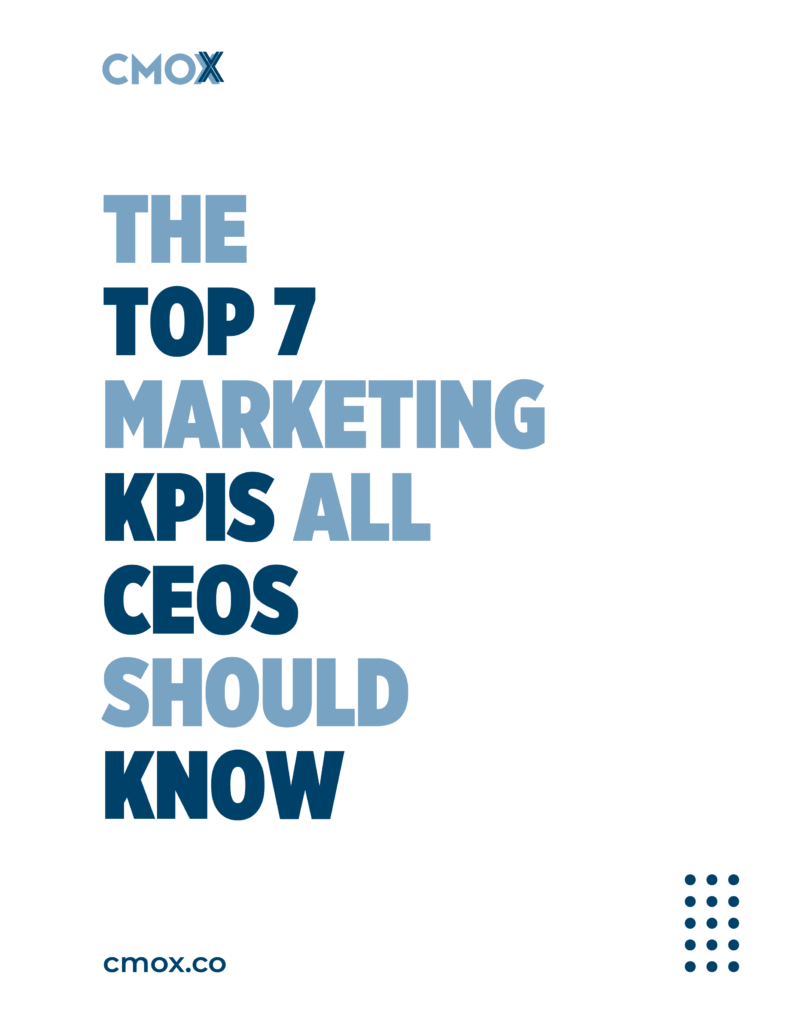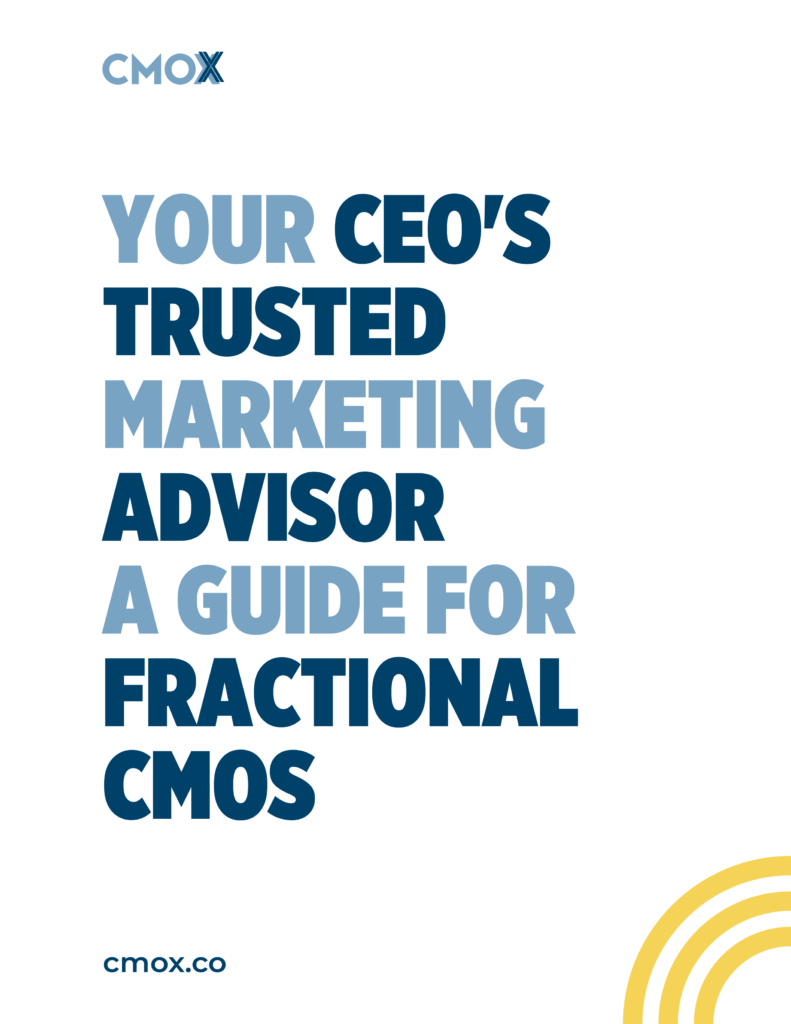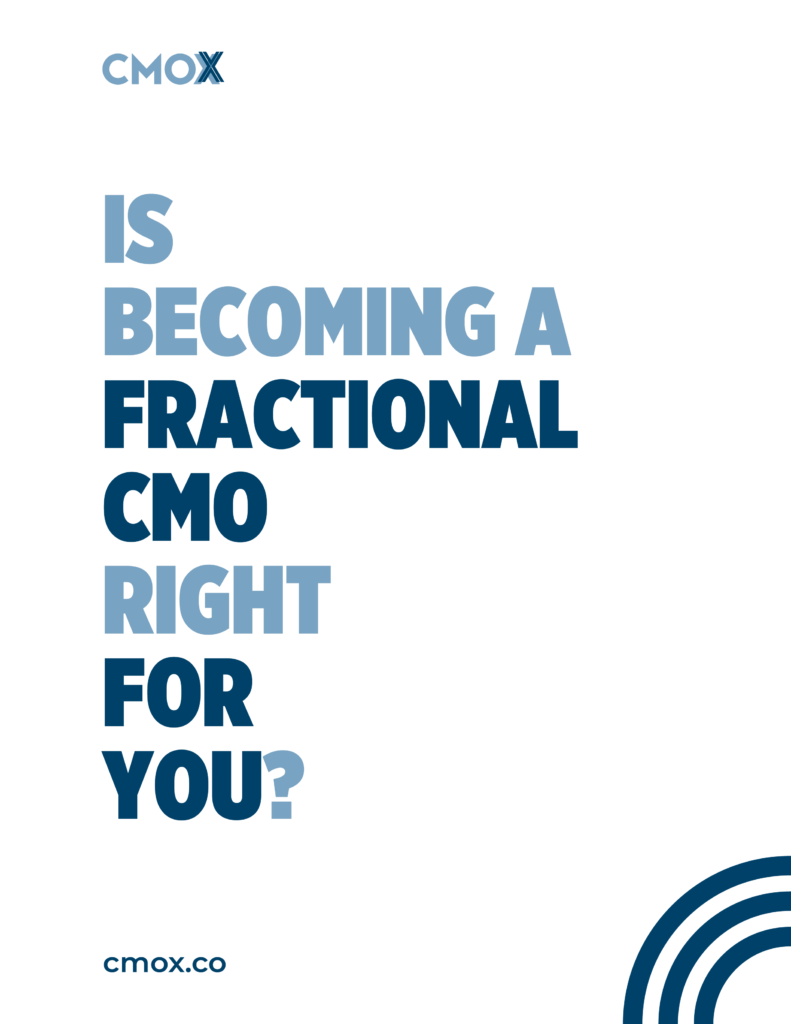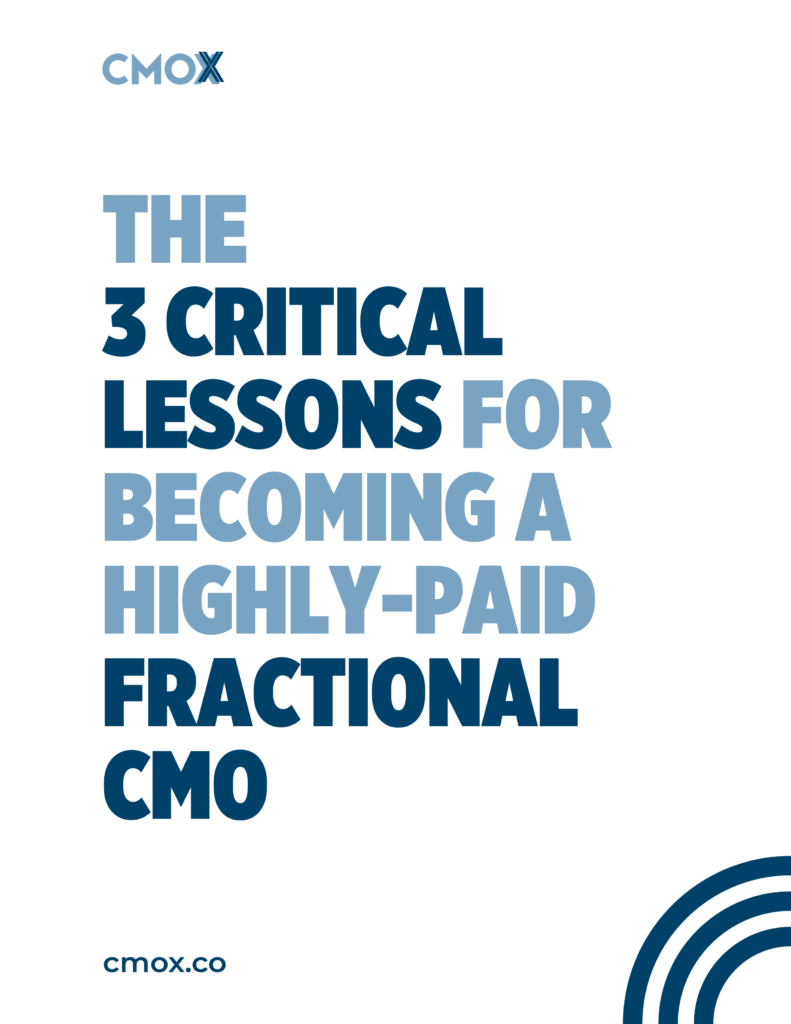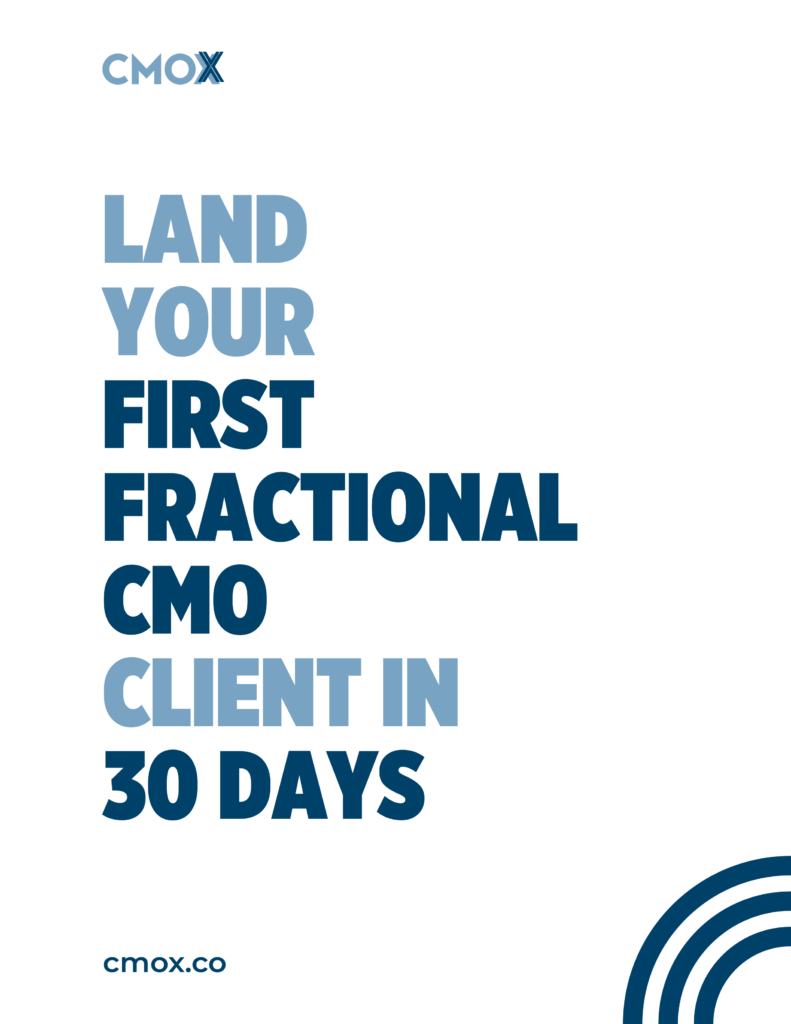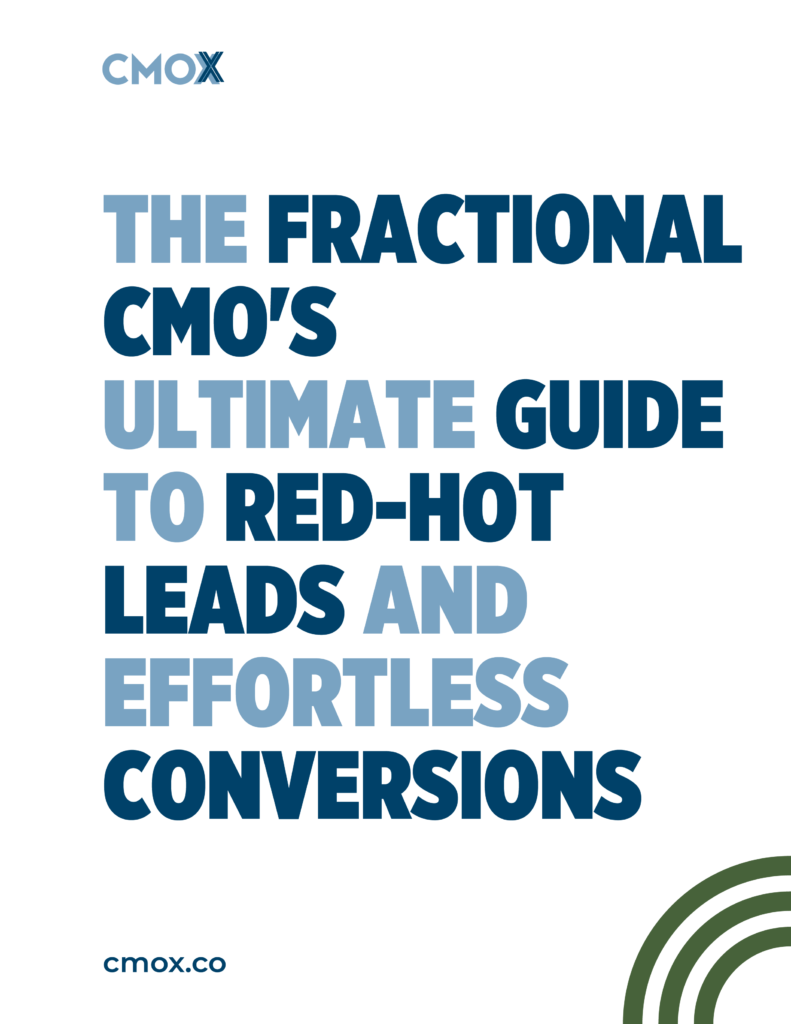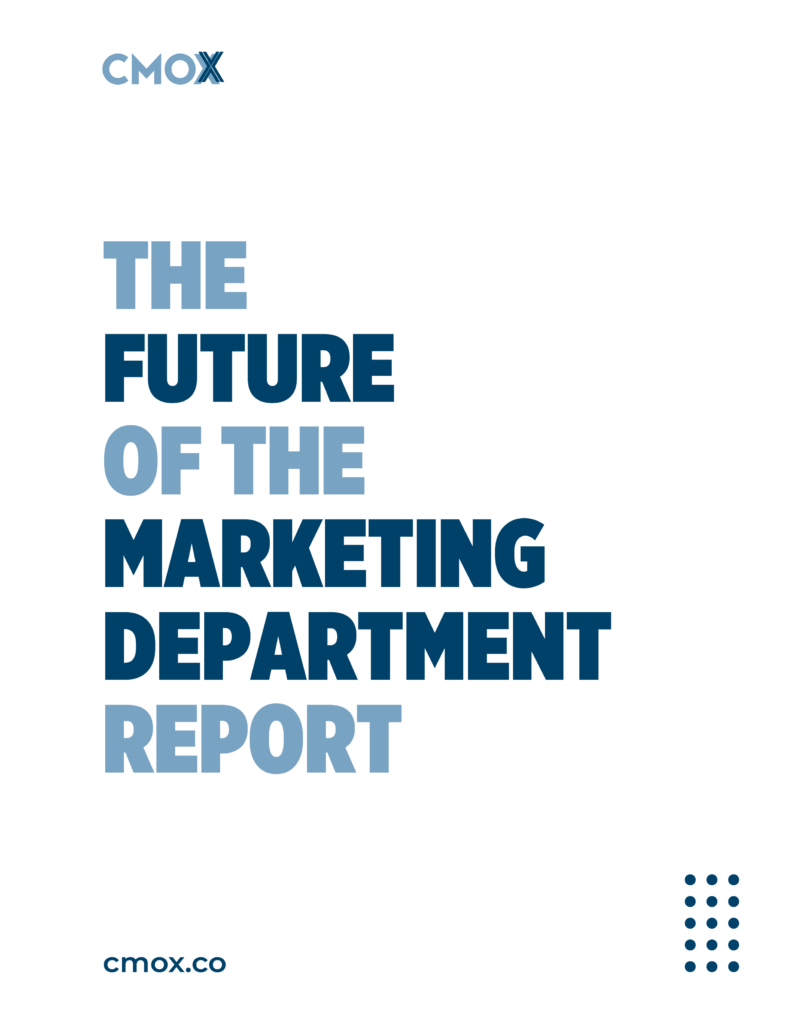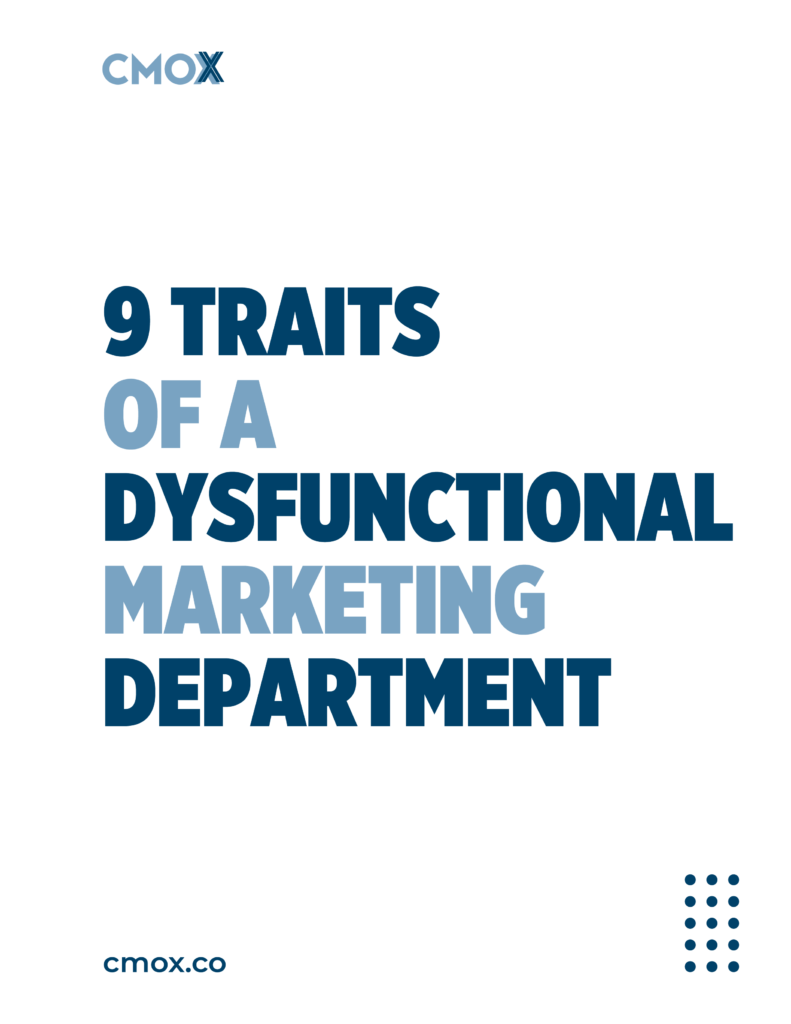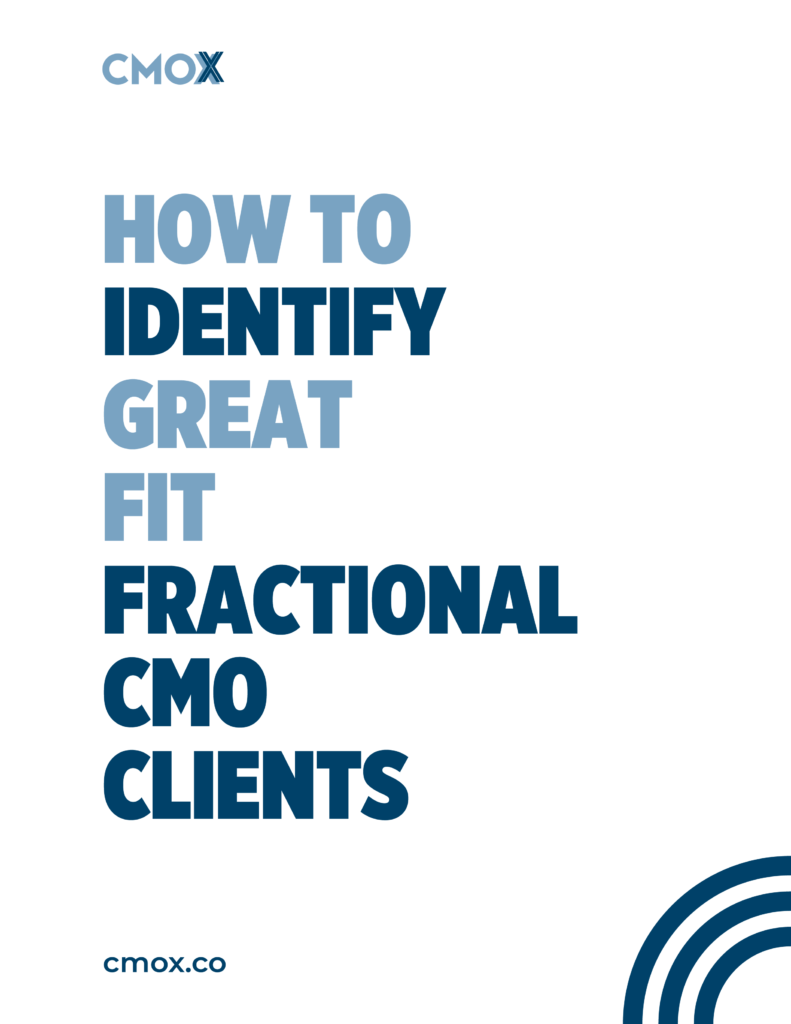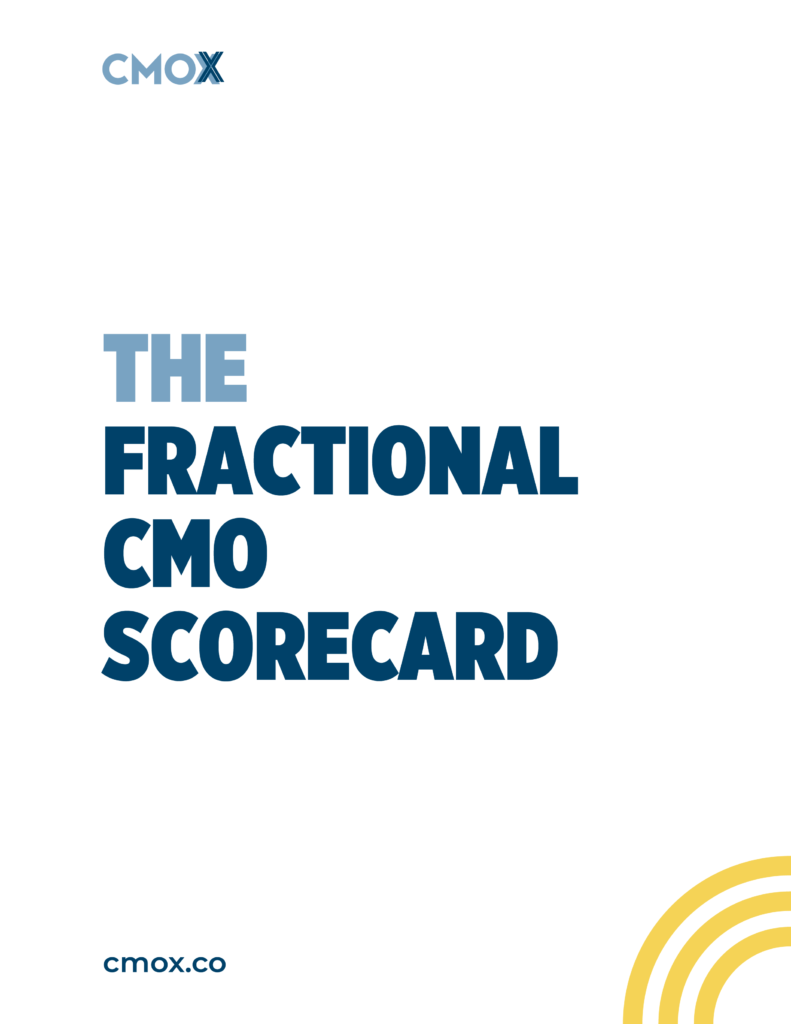Ep #106: Why Great Marketers Are Not Getting Fractional CMO Clients

In this solo episode of The Fractional CMO Show, Casey Stanton confronts a harsh truth: being a great marketer isn’t enough.
If you’re wondering why you’re not getting clients as a Fractional CMO—even though you’re highly skilled—this episode is the wake-up call you need. Casey unpacks why talent doesn’t always translate to traction, how giving away strategy is costing you money, and why volume, niche depth, and positioning are everything.
He also lays out how to shed desperation, own your value, and charge premium rates that reflect the problems you solve—not just the tasks you complete. This episode is your tactical reset if you’re ready to be seen as a true marketing leader (not just another hired hand).

Episode highlights:
In this solo episode of The Fractional CMO Show, Casey Stanton confronts a harsh truth: being a great marketer isn’t enough.
If you’re wondering why you’re not getting clients as a Fractional CMO—even though you’re highly skilled—this episode is the wake-up call you need. Casey unpacks why talent doesn’t always translate to traction, how giving away strategy is costing you money, and why volume, niche depth, and positioning are everything.
He also lays out how to shed desperation, own your value, and charge premium rates that reflect the problems you solve—not just the tasks you complete. This episode is your tactical reset if you’re ready to be seen as a true marketing leader (not just another hired hand).
🔑 Key Topics Covered:
- Why great marketers still struggle to get clients (and what to do instead)
- The #1 reason you’re not winning Fractional CMO deals: low volume
- How to talk to strangers and turn outreach into opportunity
- The danger of giving away too much strategy during sales calls
- Why desperation energy is sabotaging your close rate
- How to charge based on the value of the problem you solve
- The importance of becoming “the best” in your niche
- How AI and cheap labor are reshaping what clients value
- What it really means to be a leader clients want to follow
- How to stop chasing scraps and start dominating your category
Transcript:
00:00:00 In this episode, I’m gonna walk you through why great marketers are not getting clients as fractional CMOs. Let’s get into it.
00:00:05 Casey: Marketers of the world, why do we work hard to solve small problems? Why do we reinvent ourselves and our clients over and over? And why are we giving away marketing strategy for free? With advancements in AI, we’re all seeing the marketing department shrink from the bottom up, and companies need you to serve them as their fractional Chief Marketing Officer. It’s time to solve bigger problems and bring home a bigger paycheck. It’s time to create the lifestyle we deserve and to make a greater impact. This is the Fractional CMO Show, and I’m Casey Stanton. Join me as we explore this growing industry and learn to solve bigger problems as marketing leaders. The Fractional CMO Show is sponsored by CMOx, the number one company to teach you how to attract, convert, and serve high paying fractional CMO clients on your terms.
00:01:05 Casey: Alright, welcome back, so this is something that I hear a lot in the world of fractional CMOs. I see this a lot in the Facebook group. I don’t know if you know this, we have a free Facebook group. We’ve got about 7,000 members in it. Just search Facebook for Fractional CMO Community, and you’ll find it. It’s the best, biggest group. Or you can go to cmox.com/community and it will redirect you to the group.
00:01:25 Casey: Alright, so in that group, I see people say stuff like “I’m a great marketer, I’m not getting clients, clients aren’t hiring me. Why?” I have a lot to say on this topic. And I’m just going to give you my biggest bullets on this. Like, the thing that covers the majority of the complaints and concerns that I see from marketers. So first and foremost, winning clients as a fractional CMO isn’t about being the best marketer, like being the best at your job, like being the best at serving the client. It’s more about being positioned as a leader. It’s more about your positioning than it is about your ability. And I know this sounds kinda, I don’t know, crappy, but hear me out. The reason you’re not getting work is not because you don’t know how to be a CMO. ‘Cause you would then be getting work, like if you could get work, but you weren’t a good CMO, you would get the work and then you would lose the client. And then your chief complaint would be, “Casey, why am I getting clients and then losing the clients?” Like that’s a completely different category of questions.
00:02:24 Casey: She’s like, “How do I act like a CMO? How do I come up with great marketing strategy? How do I be a leader? How do I push back on the executive team? How do I get the team to comply and get stuff done?” Those are other questions. But we’re kind of before the sale. So this is pre-sale stuff. Like, why aren’t you getting clients? So again, there’s no correlation between how good of a marketer you are versus getting clients. Because if you were really good at getting clients and a really bad marketer, you’d have a different problem.
00:02:54 Casey: Alright, so let’s talk about the problem that you do have, likely, you’re not getting enough clients. So there’s a couple reasons why. And I just kind of have them, they’re not really in any ordered list here, but I wanNA share some of the thoughts. So one is that you’re probably just not getting enough reps. Like that’s it, it’s just like not enough reps. Go back to dating analogies. You go out and you meet three people and you say, no one likes me. But those are three people. Those three people aren’t really an indicative sample size of like the greater audience that could potentially hire you. You’re just not getting enough reps. You just have to get more reps. You just have to talk to more people. It’s a game of volume because you are honestly saying to people, “Hey, do you have this specific problem where like you’re frustrated with like your marketing or you want marketing to work better for you or you’re looking to grow but the sales team doesn’t have enough marketing or your e-commerce isn’t generating enough leads for you or whatever the problem in your niche is?”
00:03:50 Casey: You’re just not talking to enough of those people to get enough people to raise their hand and say yes. I think of some great advertisements, and I don’t know who the copywriter is. If anyone knows, please write to me and let me know. Who wrote the ad, “Do you or a loved one have mesothelioma? If so, you might be entitled to a large cash payout from XYZ.” Like those ads are just, they’re burned in my brain. They’re from my youth. They make a lot of sense. I’ve seen other ads like, you know, “Do you have cancer? Do you or loved one… Were you or a loved one diagnosed with cancer? And were you in Vietnam?” Like, “Did you handle Agent Orange?” Very specific, very clear. Imagine that ad on the TV or on the radio. How many people hear that and say no. Like when I was a kid, I was like, no, I don’t know what mesothelioma is. And then I learned that it killed Steve McQueen. And then I learned who Steve McQueen was, right? Like I didn’t even know that… who the ad was talking to it wasn’t for me.
00:04:20 Casey: So a majority of the people who hear that ad say no, but someone hears that ad and says, “Yes, like my husband is dying of mesothelioma. Wait, I could be entitled to a large cash payout? Amazing. Let me take action immediately.” If you play a small volume game, and you take that as a sample size of just the gen pop of all potential customers for you, you talk to three people and they say something to you. It’s just, it’s just an inadequate sample size and you’re wrong. You’re trusting what you think is like a trend in the data, but the data is insignificant. You have to talk to more people, you have to be talking to a lot more people. And if you’re unwilling to talk to more people, just reduce your desires to be successful. It’s totally fine not to have a wildly profitable fractional CMO practice. It’s fine to go get one client from the people that you know in your network. For a lot of folks, it’s generally possible. They can squeeze out a client from people in their network.
00:05:42 Casey: It might not be in the perfect niche, it might not be the perfect opportunity, but they can probably get some kind of payment from a fractional CMO gig. But if you want a lot of fractional CMO demand for you, so you can increase your rate so that you can solve bigger problems and be in the position of a leader and work with companies that have great budgets and great teams and that kind of stuff. You just need to have more at bats, you need to have more volume of the people that you’re talking to.
00:06:05 Casey: So for almost every single person here, your problem is volume. It is just volume. And if you solved volume, you’d have more opportunity. So that’s one. I mean, honestly, for a lot of you just like stop this podcast and say, “Alright, Casey’s right. I have to solve volume. How many new people have you talked to in the last week? in the last month? that have actually been like… people that you’ve talked to about this fractional CMO stuff that you’ve brought this up to? How many? One, five, 10, 20? Double it. Just there you go. The answer is it’s not enough, double it. And if that’s still not enough, then double it again. This is just like some fine heuristics for you to work inside of. Just double the number of strangers that you’re talking to about this stuff. That’s what you got to do.
00:06:52 Casey: You say like, “How do I meet strangers? You reach out to ’em.” Who are they? “We’ll figure out who are reasonable people to reach out to. Everybody is open to be flattered. Like, hey, I think you do really great stuff. I find you on LinkedIn. I got nothing to sell you. Can we just talk? I want to learn more about the industry. And I don’t know, just kind of understand how you guys are working. Do you mind just talking to me? And they’re like, “Sure, I’ll jump on a call for 15 minutes and feel like a superstar.” So you talk to strangers and you ask them a bunch of questions. And inevitably that question turns into, “Well, what about you? What do you do? And you say, “I’m doing this fractional CMO thing. Do you know anyone? Who do you know?” Like you can do that. Like that’s totally fine to do. Talk to strangers. It’s the only way that you’re going to win. You’re like all the success that you want. The money for that success is in the pockets of strangers.
00:07:39 Casey: And you either talk to those strangers, or you live in a fairy tale. Or you just drop down your desires and expectations in life, which again, is totally fine. But if you say, “Casey, I want to build a half million dollar fractional CMO practice, and I want to talk to like one new person every month,” You’re gonna have a tough time, right? You’re just gonna have a tough time doing that.
00:08:00 Casey: Alright, so the first one is not enough reps. The second one is sometimes folks get on like good call volume, like they have good conversations with prospective clients. But then they just kinda screw up the call. And they screw up the call in a couple different ways. I think the biggest way is that they think that by sharing so much that they’re actually gonna help this prospective client, like they’re gonna say, “Okay, yeah, if we were to work together, I’m gonna give you your Google ads. Can we open them right now? Yeah, look at this. Here’s your problem. Here’s your problem. Here’s your problem. On these landing pages, these are problems. Oh, and what about this audience? And what about ADM?” And they come up with all of these campaigns, just like they’re having fun and just like playing around on this call. And the client is doing like, I mean, prop, they’re doing one of two things, they’re either getting overwhelmed with all these ideas. And they’re like, “Can you slow down? This is crazy. I can’t handle this. Like, stop it. Like this is, like, unprofessional.” Or the other one is they’re writing down the ideas and they’re like, “Cool. Okay, yep, that’s clear. Yeah, I’ll just go ask the team to do that. And I don’t need you for it.”
00:08:56 Casey: So like when you give too much away, you overwhelm the client, or you put them in a position of just like, getting the ideas and thinking that they can go and solve them without you. And maybe they can. Like when you talk to smaller clients, sometimes it’s like, “Oh, you should just do these two things.” And it’s pretty straightforward.
00:09:13 Casey But for the bigger clients, it’s less of that. You want someone who’s a little bit more mature, who’s going to be standing up like a leader. So you can’t give away too much on the call. And let me tell you the pain of giving away too much. There’s the overwhelm. But then, what I think is worse is that the prospect thinks because you brought it down to such simple terms that they really understood it, which feels good, like that’s a good way to communicate.
00:09:37 Casey: But then they go take those ideas, they go get them implemented, or try to get them implemented. They do a poor job at it. And they turn on and they blame you. They said, I got this idea from this person I talked to. And we failed because of that. It’s their fault. And you’re saying, we just had a phone call. All you did was ask me questions. And I gave you some great advice. That’s not what you need to be doing on those calls.
00:09:59 Casey: We need to be doing on those calls is identifying their pains and then showing them how you’re the type of person who can solve those pains and other future pains that the company can have. But you don’t tell them how to solve them. You don’t say like, we’re gonna go do this and we’re gonna sign up for this campaign and we’re gonna do this with this API and you’re not doing that. You’re keeping it simple, high-level, let them understand the structure of what you’re doing. Because you want to be around for the long term, not for the individual problem. Too many people sell the solution to a small problem today.
00:10:28 Casey: And then the client sees like a transaction, either I pay you to do it, or I pay someone else to do it. That’s not it. You want to be installed as the firewall between the CEO and marketing. You want to be installed in such a way that all marketing rolls up to you, you’re the one throat to choke for all things marketing. And then you have full ownership of the marketing department, and you get the things done that are required. That’s where you want to be.
00:10:54 Casey: You don’t want to be the person that gets called in for just like the one-off little project of like, hey, we want to set up cold email, we want to set up Facebook ads, we want to set up whatever you don’t want to be that person. You want to be the person who’s owning the whole structure of everything in marketing. Alright, another one looking desperate. That’s a tough one. I’ve talked to plenty of people who are having a tough time financially. And they’re like, I’m super desperate. I’m super desperate for this for this gig, whatever it takes.
00:11:21 Casey: Then part of me totally gets it and respects it, either like, yes, you need it. Sure, 5000 a month would be great for you. But if you could get 2000, at least you’d be able to pay your rent, right? So I get like some people being really flexible in price. Nothing wrong with that. But bringing that desperation to the call with the prospect just feels gross. And you need to find yourself positioned to be in support of the client support of the prospective client, exclusively almost, to the point where you’re not even considering yourself.
00:11:54 Casey: You’re saying, no, no, no, this is the structure you need. This is what’s happening with AI. Look at the agency, they have control over all the stuff. They could just raise their prices on you. You have a team, but you’re not getting active reports from them. And you don’t know if they’re actually delivering value. I fix all of that stuff for you. Right? Like, isn’t that a better future for you? Like that’s where you want to be. You want to be like showing them that working with you is better. And you want to take your whole life condition like you’re desperate need for money or you’re losing a client or your kids going to college in some extra care, whatever the thing is, you got to leave that. Like go leave that in the bedroom, go to the office, and go vie for the success of your client.
00:12:34 Casey: That’s what they want to see. You just never bring up that personal stuff. It’s just a big deal. It’s like, just don’t talk about that ever to a client. Never say never, never have desperate energy. And you know what it looks like? I like animals smell fear if I see someone on a Zoom call, and we’re like eyeball to eyeball, I can kind of see when they’re afraid, or when they’re feeling desperate. Right? You can’t be that in that place. So you can do what’s required for you to feel centered and calm and confident. So can go and crush it. I’ll give you a quick cheat. Go find a movie where someone’s just dominating and winning, and go watch that movie. Like watch that movie before your big sales call, before your big call, we’re going to assess the deep problems with the client and position your offer.
00:13:20 Casey: Just like go find it, go find that movie that’s good for you. I won’t even tell you the ones that I like. Find the ones that you like, that are important to you, that feel good to you. And like go live that, like live that, like be that person, like recite those lines, and then go and crush it. Really important. Next thing that I see, you’re not charging the price at which the prospective client thinks that the problem ought to cost to solve. So a few years ago, my rates for Engage were like $10,000.
00:13:51 Casey: I was pretty good at what I did, but I certainly wasn’t great, you know. And then a company came to me, and I was pretty full in business, and I was happy and life was really good, and we had one kid, and my wife and I were just living a great life. Like income was great. Like everything was simple. I had, you know, I was working two and a half days a week. I don’t know. It was just a really, a really lovely, easy time of my life. And this client came and said, Hey, like, can we chat? And so I did a half-day consult, and then I was like, all right, they want me, they want to hire me.
00:14:20 Casey: What’s the rate for it? And as I thought about it, I thought two things. One, I need to charge a rate at which it makes sense for me to do the work, because life’s good right now. And do I actually need more noise in my life? But right, like, we could always say like, more money is always better. Right? If we want to put a moral frame on it. But for me, it wasn’t that more money was better. It was like, how much more money do I need to make in order for it to be worth this time? Because I was fine without it. So I increased my rates. And I got an immediate yes from the client.
00:14:50 Casey: I increased my rates by 50% from 10,000 to 15,000 a month. I just threw it out there, and they were like, yeah, can you start on Monday? They were just fast to move because they knew what it would cost to solve that problem. Like in their mind, they knew the cost to the problem. So they just absolutely completely agreed with it. Had I said, yeah, my rate’s like $7,000 for it. They’d be like, we don’t think at that rate, you are good enough. But because I charged a higher rate, I charged the rate at which the problem they believe should cost us solve. So they accepted the higher rate. Right? It’s like, it makes sense that luxury high-end experienced, you know, people leaders are more expensive. Just makes sense. Do they do a 50% better job than somebody else, or 100% 200% better job, maybe maybe not. But for companies, oftentimes, it’s buying confidence.
00:15:56 Casey: It’s buying confidence, not buying you and your talent. It’s buying confidence that they did it. When I work with fast-moving executives, they want to solve a problem and move on because their life is full of problems to solve. And they’re like moving from one to the next to the next. And one problem that they identified was marketing is really bad. And we need to overhaul it.
00:16:17 Casey: One way to overhaul it is to become an expert in marketing and do it themselves. The other way is to hire a full-time CMO. The other way is to hire a very experienced fractional CMO in that industry. They talked to me, they’re like, he’s experienced, he gets it. And he’s charging a rate at which we think it’s worth to solve the problem. Let’s hire him. Let’s bring him in. We’ll have a 30-day out just in case it doesn’t work out, we can fire him. But after that, you know, you’re locked in. I worked for that company for a couple years. It’s a lot of fun.
00:16:42 Casey: So you got to charge the rate or what the prospect thinks the problem ought to cost us off. And I want to remind you that some people don’t understand what problems should cost us off. Because some problems are tactical problems, and those problems are quickly becoming inexpensive to solve because of ChatGPT. Because of offshore workers. I mean, just today, I just wrapped this just before I’m recording this. So yesterday, I’ve been helping a friend with a project and I needed a little bit of PHP written like JavaScript PHP. I didn’t really know it was an API called a register a lead to a CRM that I’ve never used before.
00:17:20 Casey: And I’m just helping a friend out on this. This isn’t like a paid engagement or anything. And I thought, I gotta get someone to write this for me. So I just went on Upwork. And I searched for people who knew JavaScript and the CRM, which is kit.com, convert kit. And I sorted by, you know, how much money they’ve made and that kind of stuff, just to see, just like find the good talent. And then I found some two people that were available now, messaged them both. They both started talking to me, and then one just liked his vibe better. And I got on a video call with him, laid out the specs for it. He quoted me, I said cool paid him, it was 60 bucks to write the code, and it was like 60 lines of code. And in the morning, 8 AM, he had it delivered to me, and it was done. It’s incredible the speed that we can move as CMOs, incredible the speed that we can move when we have global talent available to us.
00:18:12 Casey: This like, available now, like badge that’s on Upwork profiles is incredible. I’ve hired a lot of people recently that are quote unquote available now, a lot, I don’t know, three or four people that are available now. And they just jump into the work, they do it, I pay them, they’re happy, I’m happy. It’s a beautiful thing. So when you’re able to provide that level of speed, your rates increase. I got bigger outcomes. If I worked at the agency, like I did years ago, that would have taken me that whole life cycle, probably a week. I did it in a night. And I did it five o’clock yesterday, I started the conversation and I had it on my desk at eight. And then I loaded it up on the website and tested it with a guy live on a call took us 10 minutes today at like noon. So in well less than 24 hours, I mean, in total of my time, maybe an hour, it was done and tested and rolled out to production. It’s incredible what we have available that can help increase your prices. All right, next thing I want to tell you that a lot of CMO struggle with why they’re not getting work. So they don’t have enough experience in the industry.
00:19:10 Casey: The number one thing I hear from my team, when a business owner comes in and says, Hey, Casey, hey, CMOs, do you guys have any CMOs that we could hire or this type of company and we’re looking for a fractional CMO? And we get those inquiries. We meet with those people and then we look through a pool of candidates and then we share it. I just want to tell you that is not a commitment. We don’t do that for everybody. Some people are in weird industries and we never get leads for them. But we certainly do get leads and we’ve helped some members close some really big sales as a result of the leads that we’ve provided. And the number one thing that people say is, we even tried this, we’re like, do you want someone who’s like really deeply experienced, but more expensive? Or do you want someone who doesn’t have as much experience, but we think that they’re a solid candidate, and they’ll be cheaper. Every single time 100% of the time that we’ve asked that question, the business owner says, I want the best, like I will pay a premium for the best. That’s isn’t that interesting, they’ll pay a premium to have the best person yet so many fractional CMOs aren’t getting deep enough in a niche to become the best.
00:20:12 Casey: So if they’re not going to be the best, they can’t charge the rates of the best. And then again, they live in this gap of this absolute fairy tale where they say like, I want this, but I’m unwilling to do the reps to double my outreach and connection, or get deep enough in my niche and really understand all the moving pieces. And I really mean that like all the moving pieces, what are all the events that happen? When are the events? Who puts on the events? Who are the sponsors of the events? Who is sponsoring multiple events. Like you gotta know everything about your industry if you wanna be the number one. Too many people are playing this kind of like, I don’t know, half-assed game of being a fractional CMO. They’re like, I’ll take anything, whatever it is. Maybe I’ll get lucky. It’s not a way to live. You wanna be dominant. You wanna be number one. You wanna rise to the top. You want people to not be able to pay your rates. You want that to be the only reason they don’t hire you because they can’t afford you.
00:21:05 Casey: They want you, they want number one, but they can’t afford number one, so they’ll take number two. That’s the only reason you want someone not working with you. It’s a beautiful place to be. So you have to set your sights to get there. But really it comes down to just not enough reps. That’s it. This is the sandwich on the whole podcast. You’re not doing enough talking to strangers. That’s it. Parents said, don’t talk to strangers. I’m telling you, talk to strangers. Talk to strangers. Tell them what you’re doing. Give them the good news. For so many companies, we are, as Fractional CMOs, the thing that will save them. If I asked you, would you ever kick my kids? Kind of like hope you’d say no, right? Would you ever kick my child, one of my kids, in the chest? No, you wouldn’t, right? That would be crazy. What if my kid was sprinting into traffic? Would you throw your leg out and stop my kid, kick him, knock him down, knock the wind out of him? Maybe even give him a concussion? Would you do that to save their life? Yeah.
00:22:01 Casey: Take that same protective force that you would use to stop a child from running into traffic. Take that same force and apply it to your outreach. Apply it to the conversations that you have with these prospects. AI is going to crush them. Agencies are gonna take a lot of their revenue, right? You wanna be installing marketing technicians. Yeah, bring in the agency. Love agencies. Bring in the agency, build the strategy, execute the strategy, train the team, and then the agency leaves. Maybe sits around for six months, but they don’t stick around for years.
00:22:32 Casey:You want in-house labor doing this stuff. As the fractional CMO, you need to oversee all of that. That’s what’s best for the client. That’s what increases their valuation. That’s what ensures that they’re able to adopt AI appropriately. That’s what ensures that the intellectual property, all the lessons of the best performing assets, landing page, split test and email, all that stuff, doesn’t go and get sold out to competitors, but instead stays exclusively in the business. As the fractional CMO, you build that security for the client.
00:22:59 Casey: And a failure to do that to me is a failure to care about your market. So find a market that you care about, get deep in it. And it doesn’t have to be like this super feel good market. I think right livelihood in the Buddhist noble eightfold path is worthy of consideration. Right livelihood says like, don’t work with those who are, you know, that kill, that produce weapons, that produce poisons, right? Things like that.
00:23:26 Casey: If you stay out of the negative and instead are working in morally neutral or morally positive places, you can get really deep, really far, work with great companies, help them help the teams, show them all the good news of all the stuff that’s coming, help them with remote team, help them with AI, and help them build a company that’s going to last. So many companies are going to go out of business over the next 10 years. I mean, this AI thing that’s happening right now is the single biggest change in how business is done in like what the last 100 years? Certainly in our lifetimes. And if you’re not pushing clients on this with a level of force, and I really don’t feel like you’re doing what’s required to be number one. So I hope you take this and it gives you a little kick in the butt to go out prospect, talk to people talk to strangers, have more opportunity in your life, so that you can choose what you want to do with that opportunity.
00:24:23 Casey: It’s the people who have so few opportunities that start to entertain equity deals with companies that have no revenue with founders that have no success in business, but are like throwing out equity. You don’t want that equity. That’s a waste of your time. I’ll take equity with a proven winner, someone who’s exited two companies, they’re on their third, they got a bunch of investments, and they built out a great team and they have a clear problem to solve in a market they know. I’d take on equity for that. I’d prefer to take on revenue share. But right, I would take on equity for that. I wouldn’t take it on for the startup that has nothing.That has no experience and no money and therefore is just giving you equity of something that will likely never sell because they don’t even know how to sell a business. Right?
00:25:01 Casey: Focus on yourself, focus on the type of clients that you want to work with, know that market and do what’s required to be the best. And if you say, Casey, I don’t know what’s required to be the best. Just what would you tell a friend? A friend says, “I want to be the best at XYZ. What do I do?” And you’re like, “Well, I don’t know. Probably study it every day. Read the periodicals around it. Probably go to the conferences, probably listen to the podcasts, probably just like outreach to people that are in the market and ask them about what’s going on.” That’s the stuff that you tell someone else to do.
00:25:29 Casey: Do it yourself. Just like go dominate, go be number one. We will see a mass exodus from more of these Fortune 500 companies letting go of their marketing departments. And those people are gonna say, well, I’m a marketing consultant now, or I have an agency, or I’m a fractional CMO. That will happen, it will continue to happen. And as that happens, you wanna be ahead of them.
00:25:51 Casey: You wanna be 6 months ahead, 12 months ahead, 18 months ahead. You gotta start right now and you gotta work harder than everybody else. That is the ultimate secret to success here. I wish I could tell you that it’s just like, know, copy this one document and boom, now you have three high paying clients. You know, maybe you can get your first client like that, but you’re not building a real business that pays you for the rest of your life by doing that. All right? All right, I’d love to help you if you want my help, if you my team’s help, this is what we do. I love this stuff. Someone sent me a message on LinkedIn yesterday.
00:26:23 Casey: And they said, “You must drink a lot of coffee before your podcasts”. No, this is just the passion I have for this industry and me wanting you to be successful. I love this, I love helping people who are hungry and are going to do what it takes to be successful. Those are the people that always win. It’s the people that show up that have a sense of like, I don’t have to work hard or I joined and that’s enough. It’s not enough, this isn’t Netflix.
00:26:46 Casey: When you join the accelerator, I put you to work on the right stuff at the right time with all the tools to shortcut it as much as possible which you gotta put in the reps. You gotta talk to the strangers. You gotta build that reputation so you can go dominate. right, book a call with my team, cmox.com/call. Just go ahead and book in a call and see if we can help you. And if we can, we’ll tell you what that looks like. And if we can’t, we’ll tell you where we think you should go to maybe get to the next level in your experience in marketing.
00:27:10 Casey: All right, thank you so much for being here. I’ll see you soon, bye.
00:27:13 Casey: Thank you for sticking around for the full episode. As you know, learners are earners, but you’ve gotta take action on what you heard today.
00:27:21 Casey: For more information and show notes, visit FractionalCMOShow.com. If you’d like me to answer your questions on an upcoming episode, you can share your question at FractionalCMOShow.com. And last, please hit the like and subscribe button so that I know that this content is helpful to you. Alright, go get ’em!
Join Our Community
We are excited to announce the Fractional CMO Community Facebook Group. This aims to be a place where Fractional CMOs or marketers considering becoming a Fractional CMO can connect and share ideas.
Locations CMOx® serves
- New York
- Philadelphia
- Los Angeles
- San Francisco
- Chicago
- Houston
- Dallas
- Austin
- Miami
- Atlanta
- Denver
- Boston
- San Diego
- Seattle
- Portland
- Minneapolis
- Milwaukee
- Detroit
- Phoenix
- Washington D.C.
- St. Louis
- Toronto
